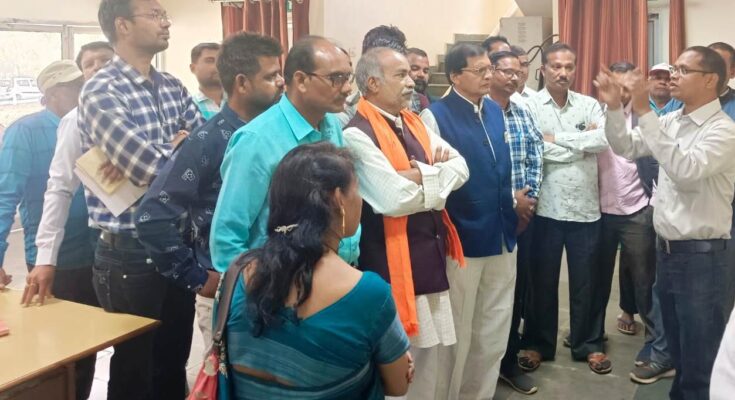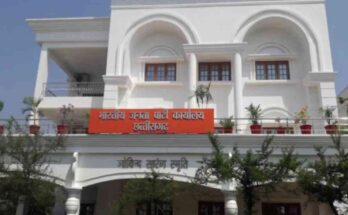Raipur, 05 February 2024
To encourage farmers for sugarcane crop, farmers are being taken on a tour of Sugarcane Tissue Culture Lab in the capital Raipur. Today 29 sugarcane farmers of Balod district visited. Along with observing the sugarcane fields, the scientists gave information about the techniques of tissue culture to the farmers.
Agriculture Department officials said that farmers were also given direct observation of the sugarcane plants of COJ 085, VSI 8005 and CO 86032 planted in the fields. Farmers were told that the cost of preparing tissue culture saplings is Rs 2.50 per sapling. 7000 plants are required per hectare, which costs Rs 17,500. Its production is 1000 quintals per hectare. By selling it at the rate of MRP, the income will be Rs 03 lakh 55 thousand. If the input material cost is reduced by Rs 01 lakh, then farmers can get a net profit of up to Rs 02 lakh. This will help in doubling the income of the farmers and the area of sugarcane cultivation will increase and other farmers will also leave the technique of sowing from sugarcane shed and start sowing sugarcane tissue culture plants, due to which the sugar factory located in Balod district will be able to provide sufficient quantity of sugarcane. .
The sugarcane farmers visiting Balod district included 07 farmers from Balod development block, 05 from Gurur development block, 05 from Daundi development block, 05 from Daundilohara development block and 07 from Gunderdehi development block. During the sugarcane farmer visit, he met sugarcane farmer scientist Dr. Khubchand Verma and Dr. Tamrakar. Scientists told the farmers that to prepare sugarcane tissue culture, the sugarcane plant should be healthy and fit. For tissue culture, one eye is sealed in a jar mixed with the mother culture. From which 30 to 40 canes come out. Each Kansa is kept separately in a poly tray. After this it is kept in the green net. After 21 days of first screening, he is taken to hot net. The second screening is transferred to polyveg after 20 days. After this it is supplied to the farmers for sowing.




